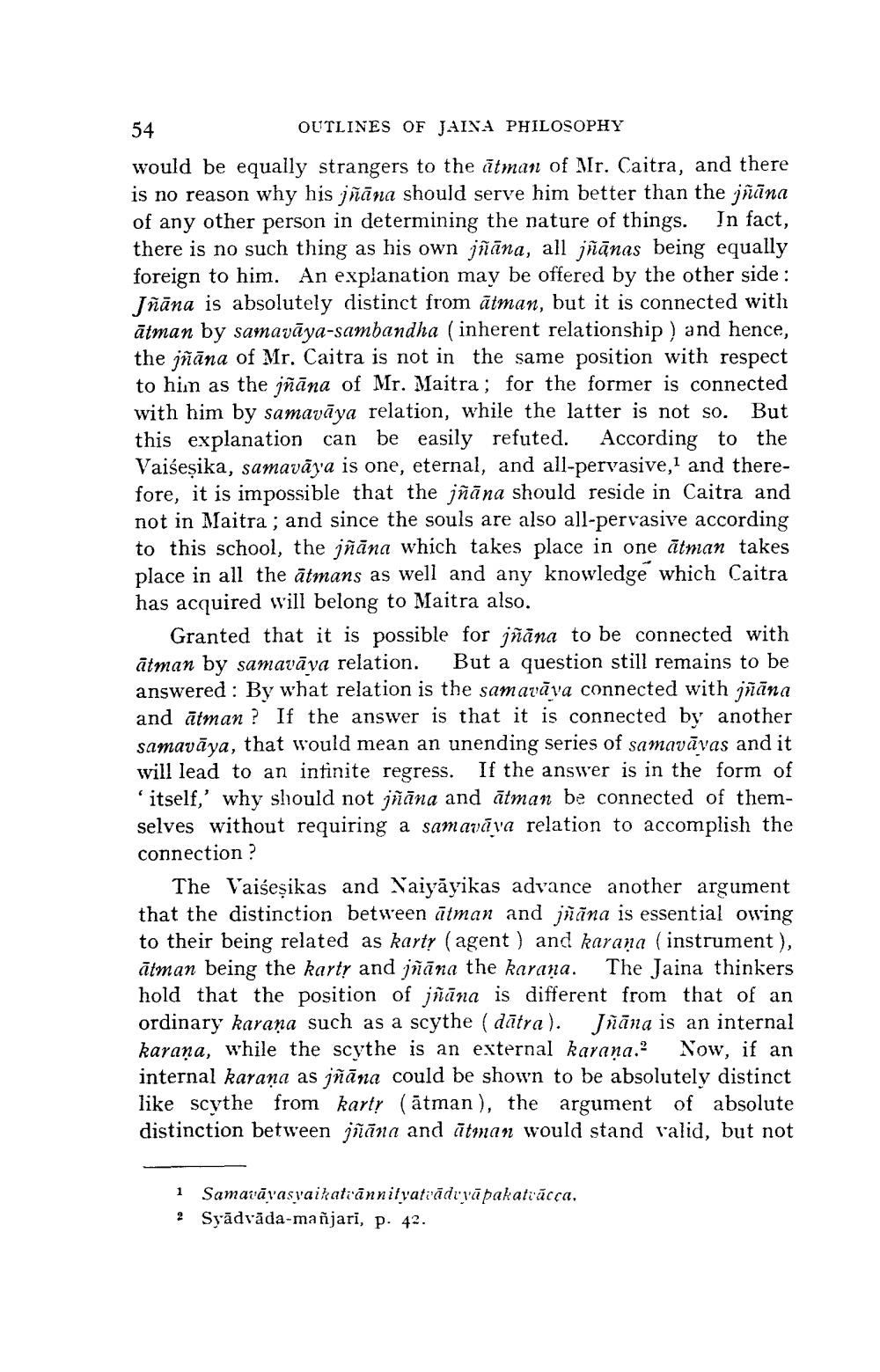________________
54
OUTLINES OF JAIXA PHILOSOPHY
would be equally strangers to the ātman of Mr. Caitra, and there is no reason why his jñāna should serve him better than the jñāna of any other person in determining the nature of things. In fact, there is no such thing as his own jñāna, all jñānas being equally foreign to him. An explanation may be offered by the other side: Jñāna is absolutely distinct from ātman, but it is connected with ātman by samavāya-sambandha (inherent relationship) and hence, the jñāna of Mr. Caitra is not in the same position with respect to hiin as the jñāna of Mr. Maitra; for the former is connected with him by samavāya relation, while the latter is not so. But this explanation can be easily refuted. According to the Vaiseșika, samavāya is one, eternal, and all-pervasive, and therefore, it is impossible that the jñāna should reside in Caitra and not in Maitra, and since the souls are also all-pervasive according to this school, the jñāna which takes place in one ātman takes place in all the ātmans as well and any knowledge which Caitra has acquired will belong to Maitra also.
Granted that it is possible for jñāna to be connected with ātman by samavāva relation. But a question still remains to be answered: By what relation is the samavāva connected with jñāna and ātman ? If the answer is that it is connected by another samavāya, that would mean an unending series of samavāvas and it will lead to an intinite regress. If the answer is in the form of
itself,' why should not jñāna and ātman be connected of themselves without requiring a samavāva relation to accomplish the connection ?
The Vaisesikas and Naiyāyikas advance another argument that the distinction between ātman and jñāna is essential owing to their being related as karty (agent) and karana (instrument), ātman being the karty and jñāna the karaña. The Jaina thinkers hold that the position of jñāna is different from that of an ordinary karana such as a scythe ( dātra). Jňāna is an internal
ana, while the scythe is an external karana.? Now, if an internal karana as jñāna could be shown to be absolutely distinct like scythe from karty (ātman), the argument of absolute distinction between ñāna and ātman would stand valid, but not
i Samavāvas vaikatrānnityatrādu vāpakatrăcca, 2 Syādväda-mañjari, p. 42.




